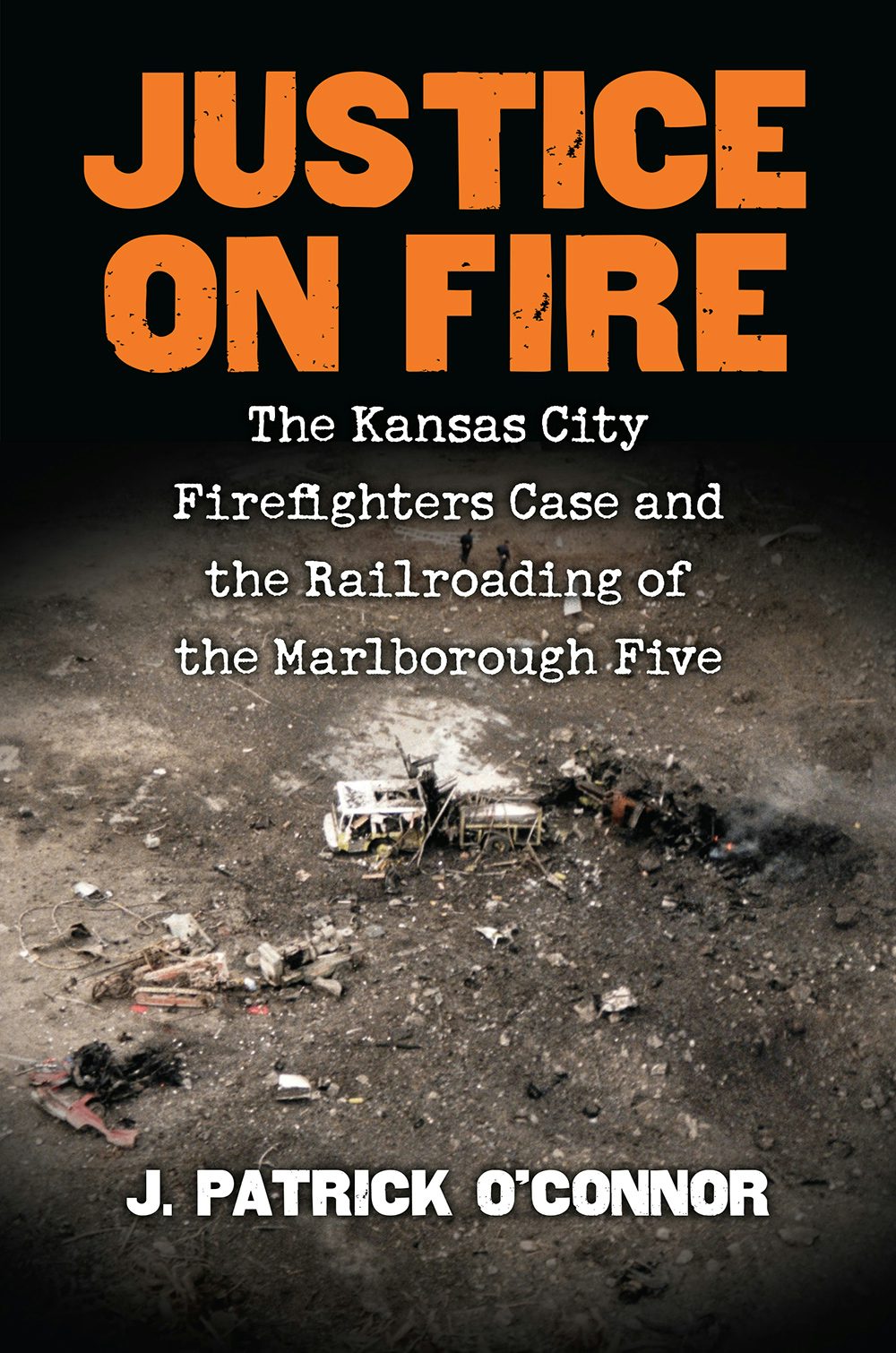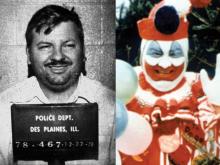Love, Murder and Corruption in Lancaster County: My Story by Lisa Michelle Lambert and David Brown, Camino Books, 2016, (388 pages). There are a number of subjects contained in this heartbreaking account of Lisa Lambert's tortuous odyssey through the U.S. justice system. The first is her story of being a sexually and physically abused teenager who is incapable of freeing herself from her batterer, Lawrence "Butch" Yunkin. From the time he raped her on their fourth date when she was 16 and he was a 6'2", 240-pound 19-year-old , Lambert feared he would kill her if she tried to leave him. Despite dozens of brutal beatings, she stayed with him. Three years later, in 1991, Lambert, Yunkin and another young woman, Tabitha Buck, were arrested for the gruesome murder of 16-year-old Laurie Snow. With Yunkin testifying for the state that Lambert was the one who stabbed the girl to death, Lambert was convicted of first-degree murder in 1992 and sentenced to life without parole. Buck was convicted of second-degree murder and sentenced to the same. Yunkin ended up being sentenced to third-degree murder and got a sentence of 10 to 20 years.
The second story involves Lambert's incredible experiences with the appeal process. Five years later, a federal district judge overturned Lambert's conviction and set her free, citing 25 examples of misconduct by the Lancaster (Pa.) prosecutor and law enforcement officials. Judge Stewart Dazell stated that virtually every piece of evidence used to convict Lambert was perjured, altered, or fabricated. And then a year later a federal appeals court in Philadelphia vacated the decision to release her on technical grounds, not on the merits of her case. A new trial was ordered in state court before the same judge who had presided at Lambert's first trial. She was once again convicted and her sentence of life without parole was reinstated. She remains in prison.
Insightful commentary about the legal roller-coaster Lambert has been riding for the last 24 years is provided by attorney David Brown.
The third story concerns Lambert's account of her brutalizing experiences as an inmate at various state prisons at the hands of inmates, prison guards, and prison administrators. For an inside look at what it is like to be a female prisoner at the mercy of a broken penal system, this book presents a stunning look at the savagery that goes on behind bars.
The Devil You Know: The Surprising Link between Conservative Christianity and Crime by Elicka Peterson Sparks, Prometheus Books, 320 pages, including 136 pages of notes, bibliography, and an index. The United States has more fundamentalist Christians than any other comparable nation and yet is one of the most violent countries in the world with a very high rate of lethal violence. The author thinks this is no coincidence. She argues that high rates of violent crime in the United States can be correlated with Christian conservative attitudes, especially in regard to social mores and politics. "Modern conservatives Christians seem to focus on the negative almost exclusively, defining themselves far more through whom they oppose than through what they stand for as a group. They are against abortion, contraceptives, comprehensive sex education, the media, competing religions, anything that smacks of political correctness, socialist, gays and lesbians (along with their right to marry, adopt or have children, and enjoy legal protection from discrimination), academics, anyone who is anti-war, immigrants, feminists, communists, human and animal rights activists, Democrats, secular humanists, criminals, intellectuals, activist judges, foreigners, environmentalists, poor people, people with differing or no religious beliefs, people having sex out of wedlock, and liberals of any stripe," she writes.
Their belief that America was founded as a Christian nation drives them to try to install their fundamental brand of Christianity as the dominant factor in the country's political and social life. Fundamentalist have attained significant cultural influence in the nation's South, where the highest homicide rates are recorded. It is the fundamentalists' sense of righteousness, their dogmatic mindsets that brook no dissent, and their support for harsh penalties that has made their worldview the ideal seedbed for violence. Not only does this mindset make violent reactions in interpersonal conflicts more likely, but it exacerbates the problems of the criminal justice system by advocating policies that create such high incarceration rates that the United States is by far the world's largest jailer. The rigid belief system of religious fundamentalists also leads to the victimization of women, children, and LGBT people.
Elicka Peterson Sparks, an associate professor of criminology at Appalachian State University, has written a seminal work on a controversial subject that is all but considered taboo to address.
The Big Book of Sherlock Holmes Stories, edited and with an introduction by Otto Penzler, Vintage Crime/Black Lizard Original, October 2015 (816 pages). Since Arthur Conan Doyle introduced Sherlock Holmes and Dr. John Watson in 1887 (A Study in Scarlet) some of the most accomplished writers -- then and now -- have found it irresistible to take their own crack at presenting cases for this enigmatic pair to mull over. Otto Penzler had collected 83 of these stories, including parodies by Doyle himself as well as tongue-in-cheek spoofs by three of his contemporaries, A. A. Milne, James M. Barrie and O. Henry. Other stories are by P. G. Wodehouse, Dorothy B. Hughes, Kingsley Amis, Stephen King, Anne Perry, and Colin Dexter. Other modern day Sherlockians, such as Leslie S. Klinger, Laurie R. King, Lyndsay Faye, and Daniel Stashower, will almost make you feel that Arthur Conan Doyle is still plying his craft, chronicling the cases of the most celebrated detective in history.
Murder Over a Girl: Justice, Gender, Junior High by Ken Corbett, Henry Holt & Co., 2016, 273 pages. For most teens there is no more traumatic, confusing time than their junior high years. Throw into that mix a 15-year-old, transgendered black trying to find and live with his identity. The murder of 15-year-old Larry King in a junior high classroom in Oxnard, California on February 12, 2008 was a special kind of hate crime. Larry wasn't murdered by a blond, blued-eyed classmate because he was black but because he was transgender and was in the process of "coming out." Two weeks before Brandon McInerney shot Larry twice in the back of the head during the first period, Larry had begun wearing female accessories with his school uniform -- heavy mascara, lipstick, high-heel boots, and jewelry. He wanted his teachers and classmates, many of whom teased him relentlessly, to know that he was actually a girl and his name was Leticia. Ken Corbett, a clinical psychologist in private practice who also teaches psychology at New York University, was unsettled by the media coverage that sidestepped the issues of gender identity and race that went into the cold-blooded, calculated murder of Larry King. Using the 47-day trial of Brandon McInerney in 2011 as a platform for delving into transgender issues and the hate they can inspire, Corbett has written an extraordinary book that brings compassion and understanding to Larry/Letitia that was denied him in his short, confused life.
Sunny Skies, Shady Characters: Cops, Killers, and Corruption in the Aloha State by James Dooley, University of Hawai'i Press, August 2015 (238 pages). The total isolation from mainland America made Hawaii a fertile environment for the underworld to flourish. This remains true today. When James Dooley, an investigative reporter for the Honolulu Advertiser, began his career in the mid-1970s he focused on the infiltration of Hawaii's underworld by Yakuza, organized crime gangs from Japan who had infiltrated all the islands. Over the next 30 years he wrote Page One articles about notorious felons Henry Huihui, Nappy Pulawa, and Ronnie Ching. In doing so, the name of Big Island rancher Larry Meheu kept popping up, so much so that the FBI came to view him as Hawaii's godfather of organized crime. Like Frank Sinatra, Dooley found that the island's mega-entertainer, Don Ho, had close ties to organizaed crime.
A Privileged Witness: The Truth About Billionaire Edmond Safra's Death by Ted Maher, with Bill Hayes and Jennifer Thomas, New Horizon Press, 2015, 297 pages. When billionaire banker Edmond Safra died in a fire in his lavish Monte Carlo penthouse on December 3, 1999 there was no shortage of potential suspects, from the Russian Mafia to Columbia drug cartels. Above all else, Safra's death was a direct threat to Monaco's claim as a safe haven for the rich and famous. If Safra, who was surrounded by bodyguards and whose penthouse was a rocket-proof and bomb-proof fortress could die of smoke inhalation locked in his own bathroom, who was truly secure? For years, Safra's business dealings had been shrouded in mystery and top secrecy. No one really knew how he had amassed such a wide fortune. Over the past year or two, he had been collaborating with the FBI in a case against the Russian Mafia and their international money-laundering operations. Instead of pursing those leads, Monacan investigators focused instead on one of Safra's nurses, former Green Beret Ted Maher, and in due time convicted him and sentenced him to 10 years in prison. The book tells Maher's side of the story, of how he was framed and scapegoated to cover up ugly truths about Safra, Monaco, and the bizarre, outdated justice system on the Cote d' Azure.









